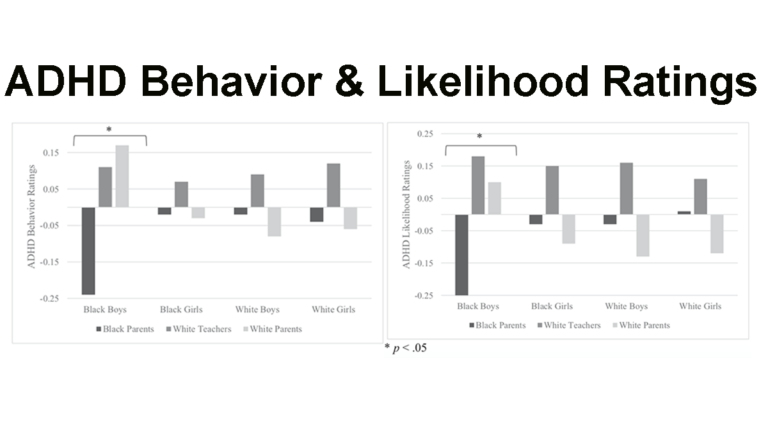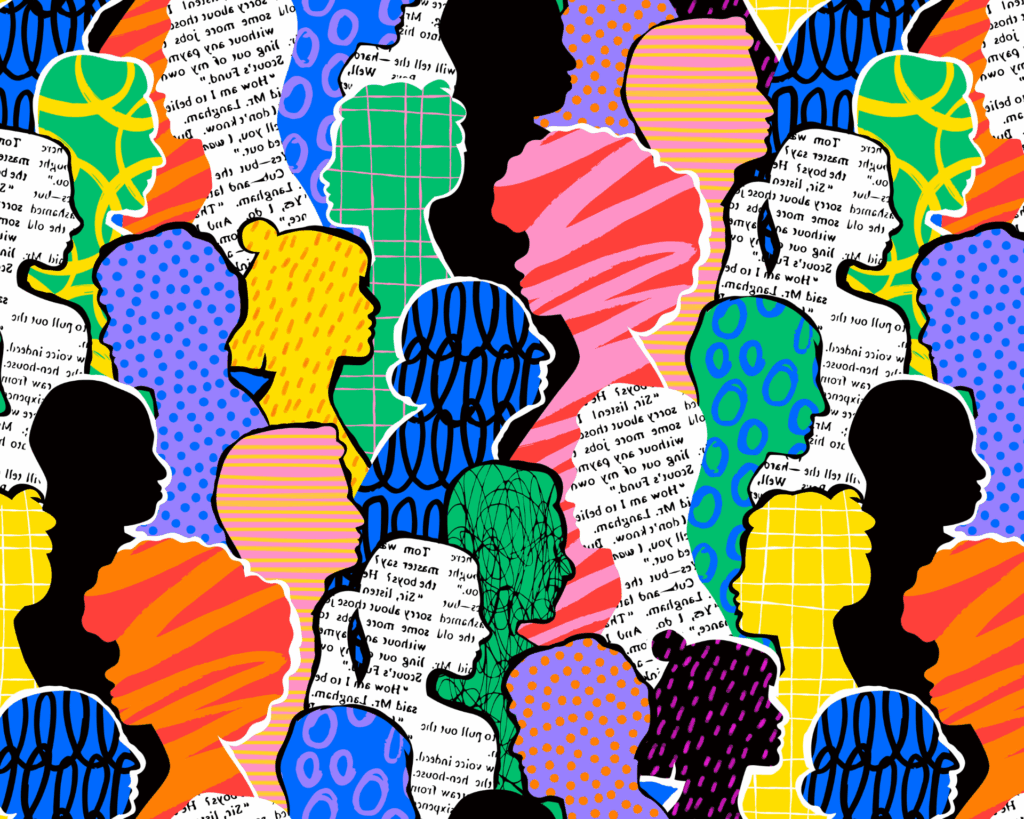Biases in ADHD
Research suggests that racial attitudes contribute to deviations in parent and teacher perceptions of children’s ADHD behaviors.

Read Time: 2 minutes
Published:
Black boys are trapped in a disparity – they have lower rates of attention-deficit/hyperactivity disorder (ADHD) diagnosis, yet they are also overrepresented in special education and disciplinary programs in schools.
Kang and team compared ADHD ratings of children by Black parents, white teachers, and white parents. The adult participants watched a short video of a racially diverse group of children interacting in a classroom. Afterwards, parents and teachers identified specific children and rated their behaviors associated with ADHD. They also answered questions about their attitudes towards race and personal experience with racial discrimination.
As noted in the Figure above, white teachers and white parents gave Black boys higher ratings of ADHD behavior and likelihood. Black parents were least likely to identify Black boys as having ADHD. Additionally, white teachers with more negative attitudes towards African Americans and Black parents who experienced more racial discrimination gave higher ratings of ADHD to Black boys. The researchers theorize that Black parents who experience racial discrimination may be underreporting “problematic” behaviors in Black boys to protect them from the unjust view of Black males being a threat to society.
The findings suggest that racial attitudes contribute to deviations in parent and teacher perceptions of children’s ADHD behaviors.
The results may also explain the disparity for Black boys. If Black parents are less likely to recognize ADHD behaviors in Black boys, there is a lower likelihood of ADHD diagnosis and treatment. However, 82% of teachers are white. Referral to special education and disciplinary action resides with predominately white school administrators. The authors speculate that, because white teachers gave higher ratings of ADHD, they could be misplacing Black boys in special education and disciplinary programs because of racial biases.
Schools are a microcosm of society, giving us our first experience with authoritative figures and institutions. Therefore, educators must be careful to avoid teaching Black boys that they are what society expects them to be: a problem. Culturally-informed ADHD assessments and awareness among adults of possible racial bias can help create conditions for Black boys to succeed.
Databyte via Kang, S., Harvey, E.A. Racial Differences Between Black Parents’ and White Teachers’ Perceptions of Attention-Deficit/Hyperactivity Disorder Behavior. J Abnorm Child Psychol 48, 661–672 (2020).



